Crime
OMOJUWA: The crooked path of an influence merchant on Twitter
Published
5 years agoon
By
Editor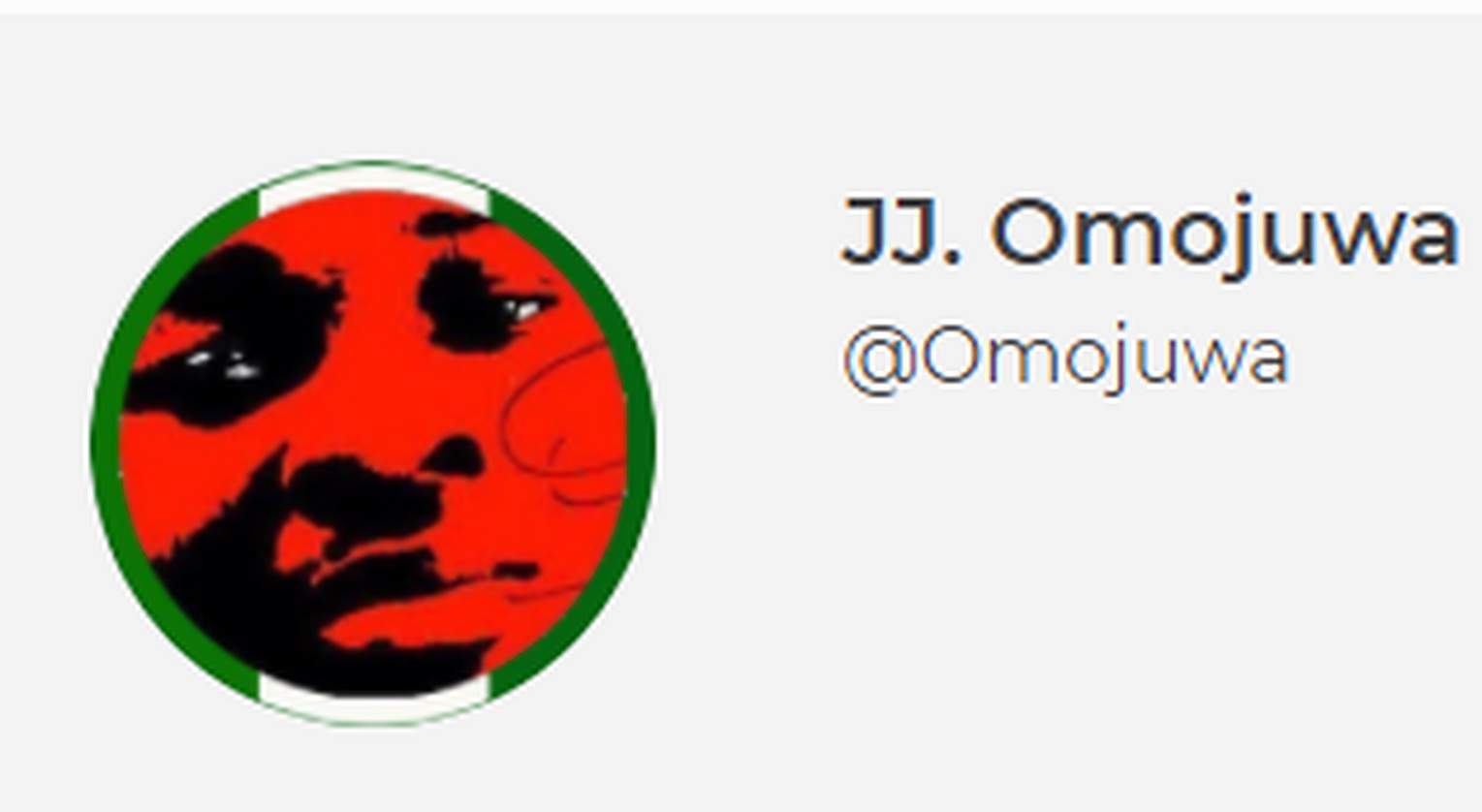
For 11 years, he cozied up in a glass house, hurling stones. It was hip until now it’s all crashing on him
By Elijah Olusegun
They started off as bloggers and citizen journalists, copped out because there was little to show for raiding other websites for contents, then pivoted, and became social media warriors, calling out newsmakers, a sort of activism that got them Twitter-famous. With hundreds of thousands of humans and bots following, these guys appeared to have hit pay dirt online after a while.
Sometimes the raking is clean; sometimes it’s mucky. The thing is, show them the color of the money, they go for anything: overseas funded ENDSARS protest, #BBOG, donor-sponsored feminist agitation, brand storytelling, political campaigns, and others.
And it was all pretty buttoned up until Twitter and foreign media unveiled Alpha Reach Media, its big honcho Japheth Omojuwa, Pamilrin Adegoke, Nollywood star Tonto Dike, and other little known but nonetheless horn-tooting social media influencers.
The deal, a media and legal campaign for Alex Saab, a US-wanted fugitive trapped in Cape Verde, is, obviously, fully entrenched in Nigeria.
Saab’s legal team is headed by rights activist and Lagos Lawyer Femi Falana; its court of public opinion handled by Digital Good Governance for Africa (DIGA), a UK-based firm that Christian Elemele, a Nigerian, cofounded, working along with Omojuwa’s Abuja-based Alpha Reach Media. A Journalist with the Tribune and a freelance contributor to TheCable, and other Twitter hotshots like Dike and Pamilerin also got in on it, Buzzfeed reported.
All of these legal and social media influencers are no strangers to one another. The October 20 agitation to end police impunity, among other conscious activities, connected many of them. They all tweeted in support; they expounded the legal implication of the army deployment that worsened the matter at the Lekki Toll Gate. Falana is still holding briefs for some of the victims. Pamilerin got foreign donor funds wired to him to help the cause, and his account was frozen by the CBN in the investigation that followed the incident. Omojuwa was among the 40 opinion leaders a local businessman sued (court dismissed the suit) for allegedly inciting the violence that ruined his business.
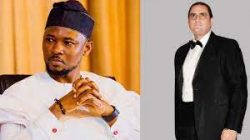
For the ENDSARS campaign, rights activism could have brought them together—on the face of it. But the Saab case, a campaign to defend the rights of a money launderer arrested and detained in Cape Verde while on the run, revealed the sleaze beneath Nigeria’s social media influencers’ activism.
It’s always about money, not common good. Even on occasions their activism and business meld into each other, like Omojuwa’s Alpha Reach contract, brand integrity doesn’t matter. And such monkey business prospers thanks to the hype and figure-fudging social media brands do to make money. Omojuwa comes across as one of such.
His hustle, just like Pamilerin’s, started from citizen journalism—some kind of forage into the media already blighted by social media. The graduate of agric economics ran a website and a blog then— he still runs them. Neither of them is spinning that kind of money or landing any gig, despite his crowning as one of Nigeria’s foremost social media influence juggernauts, with over one million followers in 11 years. It’s curious his social media influence isn’t fungible in the sweat and blood world of online news media business. The followers wouldn’t spend a split second on his blog jjomojuwa.com or his contents farm www.omojuwa.com.
Currently jjomojuwa.com ranks 6.1 million globally, with 197 daily visits, and about the same figure for daily impressions. The second website, 1.7 millionth globally, and last updated three years ago, has 1500 daily visits, and about the same figure for impressions. With all his followers, Omojuwa can only make about $6.83 cents from his websites.
He probably left blogging way back. But as unprofitable as his blogging was then, his hype was selling. He did talkshops on making money from blogging and social media; he got invites even outside of Nigeria. He once boasted of places he has been to—places his critics will never get to in their first life. As expected, he’s put all that, his experience, his Twitter thought leadership, together in a book, a potboiler: Digital: New Code of Wealth. The book was well launched—by the very people he called out and rubbished on his way up the social media influence ladder. APC Gov Nasir El Rufai graced the launch in Abuja in August 2019.
There’s no record of how many copies he sold on his websites. No idea of how much he raked in from his one million plus followers, and the over 4,000 following. But, certainly, the book is no chartbuster.
Which shows more clearly the exaggeration of Omojuwa’s social media influence—Twitter influence. Analyses of his Twitter account on SparkToro and Twitter Follower Audit reveal these: fake followers, including bots and spams, make between 3 percent and 24 percent, over 260,000 of his 1.1 million followers. While none of the accounts of his followers is verified (with a blue badge of authenticity), and just 2.5 percent of them protected, Omojuwa sure has 96 percent of them active. Trouble is, the quality—authenticity and other factors— of the followership is not, ordinarily, bankable. The analyses of the quality reveal between 0.1 percent and 24 percent of his followers score 10 on a scale of 1 to 10.
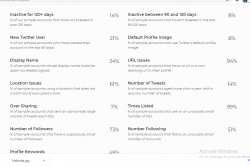
SparkToro Fake Followers Audit of @JJ Omojuwa
Sampling Omojuwa’s tweets randomly, one can see he has 30 retweets on average, and 192 likes per tweet. All that makes SparkToro pegs his engagement at 21 out 100. Other than when he promotes his clients—in form of pushing suggestive news, like he did in #Free Alex Saab—Omojuwa doesn’t lead any thought in his tweeting. Over 40 percent of his conversations are retweets. Many of his followers hardly see eye to eye with him when he expresses his own thought. They accuse him of introducing toxicity to social media conversation—for political reasons. The free AlexSaab scandal threw up some of his vitriolic tweets, including his take on ex-President Goodluck Jonathan before the 2015 election.
How Omojuwa ended up as Nigeria’s social media powerhouse was obviously about stats—not influence. Twitter presence alone in Nigeria is not enough to meter social media influence. Twitter ranks No. 6 social media platform Nigerians use, coming behind WhatsApp, Facebook, U-Tube, Instagram, and Facebook Messenger, in that order, according to the Digital Report 2021. That apart, there’s no definite figure of the number of Nigerians on Twitter. Whatever the figure is, Jack Dorsey, Twitter CEO, in 2019 said, “It is not enough.”
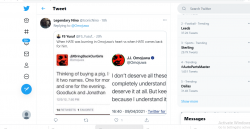
Nigeria’s activity on social media, generally, is not enough, either. The report states only 33 million Nigerians, out of 208 million, are active on social media.
The influence Omojuwa’s followership, 0.3 percent, flaunts is thus arguable. But selling his reach becomes easy—with packaging, a cocktail of lies and truth and manipulation and propaganda.
Omojuwa’s profile screams of what he likes his followers to see as achievements: lecturing at the Free University, Berlin; membership of WEF Global Shaper; plus an array of others, and, more significantly, his appointment as a director on the board of the Convention on Business Integrity (CBi), a group Vice President Yemi Osinbajo founded.
For all the 50 shades of integrity, promoting a fugitive’s rights to not be extradited doesn’t look like one. But Omojuwa didn’t only compromise in taking on the Saab project; he did crooked things in the lead-up to the project that lasted between January 18 and Feb 18, as Buzzfeed reported. His Alpha Reach Media that got the brief to influence opinions of the matter in Nigeria, Ghana and other West African countries, was founded on fibres of lies. He registered the PR firm with the CAC as a construction firm; he secretly dropped the name of ex-Minister Obi Ezekwesili, a social media influencer herself, without her knowledge. (Omojuwa and Ezekwesili worked together as #BBOG activists. It wasn’t like they were strangers) That he brought onboard El-Rufai and President Muhammadu Buhari’s son-in-law Ahmed Indimi also smacked of insincerity, according to some of his followers.
Omojuwa has been lying since the report exposed him recruiting 40 other influencers for the Saab stunt. He’s been denying involvement despite a CAC company profile, a Twitter ban on all those accounts rooting for Saab.
“It is pertinent to note that none of those accounts had any link or affiliation with our company,” he said on Alpha Reach involvement in the # Free AlexSaab campaign. “On another note, Alpha Reach wishes to state that at no time was Dr. Mrs. Obiageli Ezekwesili a part-owner of Alpha Reach, and she is not a member of the Alpha Reach board.”
His refutation came after Ezekwesili set her lawyers on him. Many doubt the seriousness of the suit, though. Her lawyer, Falana, is a hand in the glove. He defended Saab, and tackled Cape Verde in court, and heckled ECOWAS while Omojuwa, simultaneously, manipulated public opinion in the media to prevail on Cape Verde holding onto Saab.
Again, it’s also likely Twitter won’t bring down the hammer hard on him as expected. Accounts the platform associated with the campaign were only temporarily affected. His own account, @Omojuwa, wasn’t suspended, despite retweeting a headline to mislead his followers, and nudge them into joining the bandwagon. But all that still redounds to his credit—his slipperiness in gaming the system and getting away with it.
You may like


Nigeria Declares Readiness to Host 2030 Commonwealth Games
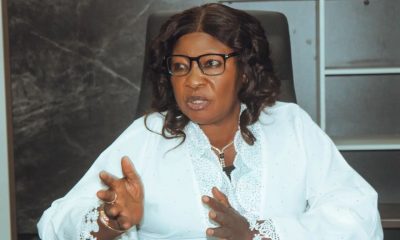

BREAKING: The Head of Service of the Federal Capital Territory (FCT), Grace Adayilo is dead
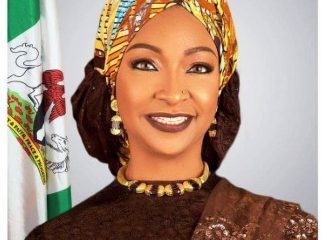

Nigeria, Switzerland begin talks on artefact repatriation and cultural cooperation
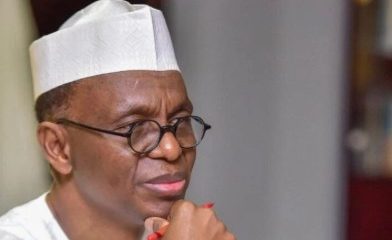

El-Rufai rules out 2027 ambition, Says He’s back to mentor youth, Support credible leadership


NMDPRA – Nigerians spend N1.3tn on petrol in June amid soaring energy costs


Social Media and Crisis Communication in Nigeria: Lifeline or Landmine?
Trending

 Health5 days ago
Health5 days agoDeclassified CIA memo explored concealing mind-control drugs in vaccines

 Entertainment7 days ago
Entertainment7 days agoSimi addresses resurfaced 2012 tweets amid online backlash

 Crime5 days ago
Crime5 days agoSenior police officers faces retirement after Disu’s appointment as acting IGP

 Education7 days ago
Education7 days agoPeter Obi urges JAMB to address registration challenges ahead of exams

 Health7 days ago
Health7 days agoNAFDAC issues alert on suspected revalidated SMA Gold infant formula

 Comments and Issues6 days ago
Comments and Issues6 days ago20 Critical Fixes to Save Nigeria’s Democracy from Electoral Fraud

 Football6 days ago
Football6 days agoMartínez ruled out of Everton clash with calf injury

 Latest6 days ago
Latest6 days agoICPC yet to respond to El-Rufai’s bail request as arraignment date looms

